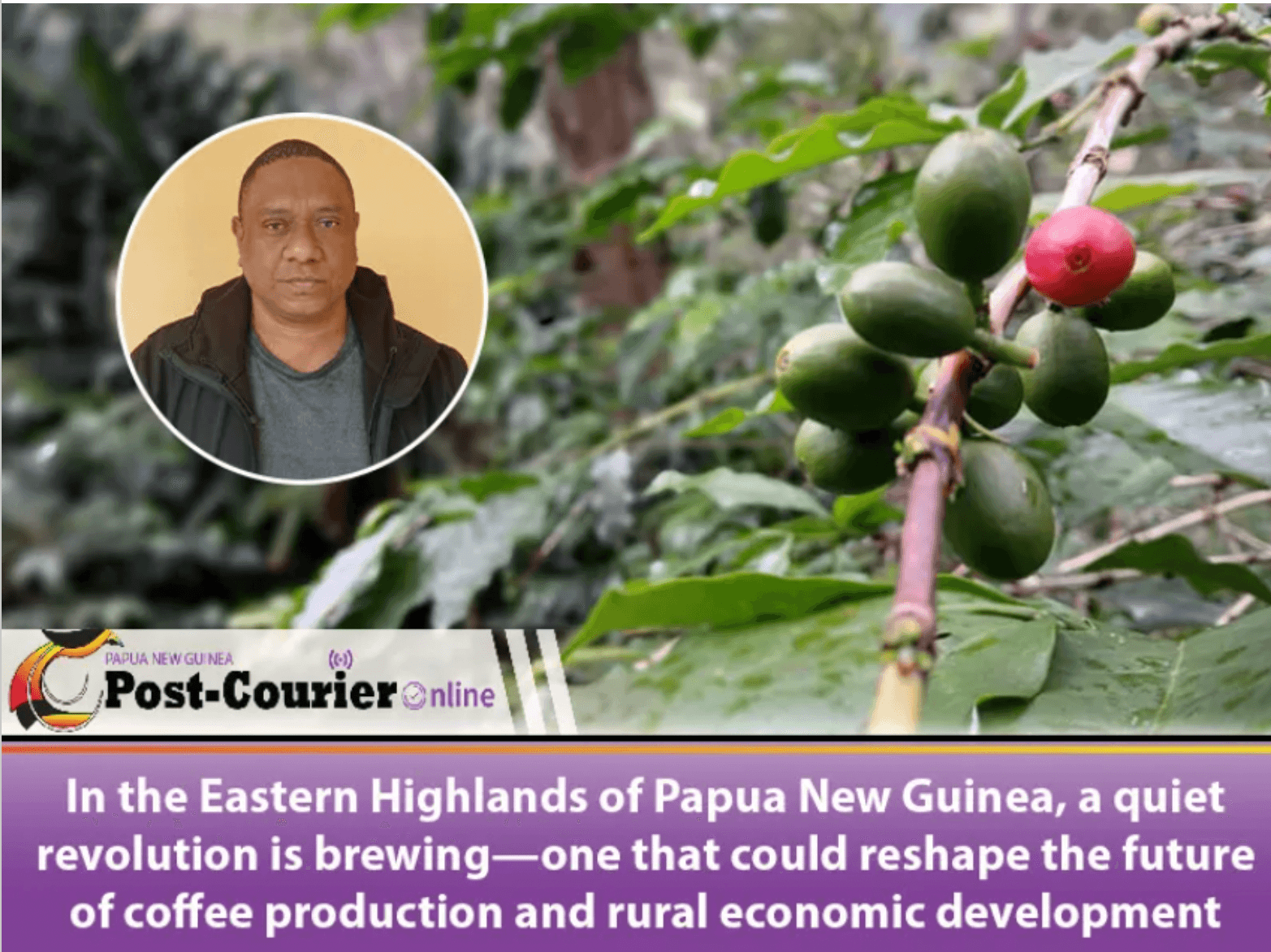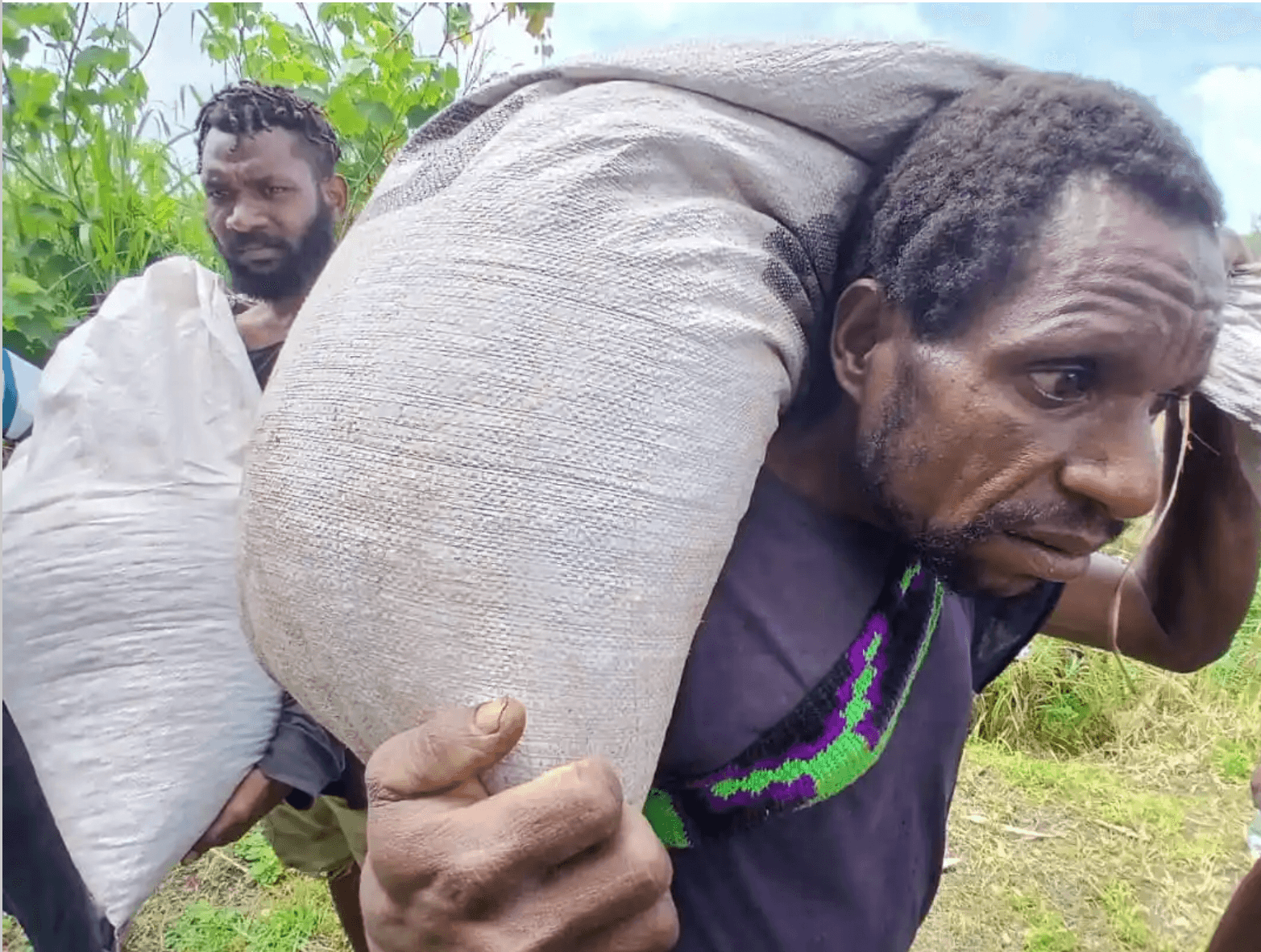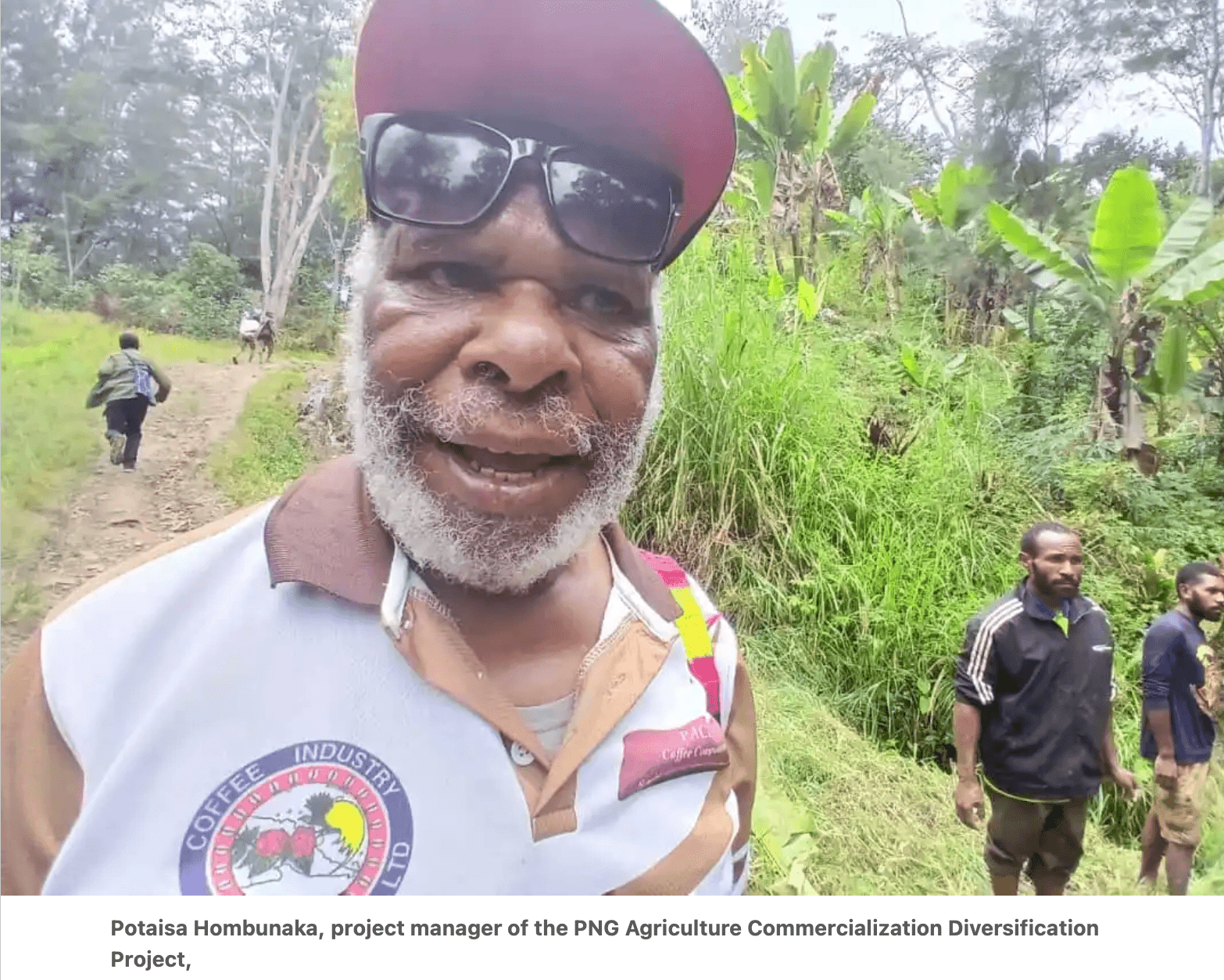The real prospect of creating million jobs through cooperatives
Source: Post Courier 15th April, 2025
By Scott Waide

In the Eastern Highlands of Papua New Guinea, a quiet revolution is brewing—one that could reshape the future of coffee production and rural economic development.
Potaisa Hombunaka, project manager of the PNG Agriculture Commercialization Diversification Project, is at the forefront of a strategic effort to mobilize farmers through cooperative societies, an approach he believes is critical to achieving national economic goals.

The challenge is significant. Papua New Guinea aims to dramatically increase its coffee production to 3 million bags, a target that seems impossible without fundamental changes in how farmers operate.
Hombunaka sees cooperative societies as the key to unlocking this potential, describing them as more than just agricultural organizations—they are pathways to economic empowerment.
“We have to mobilize our rural people into cooperatives,” Hombunaka explains. The strategy goes beyond simple organization. It’s about providing farmers with technical inputs, creating aggregation points for coffee production, and helping farmers add value to their primary product. By bringing farmers together, cooperatives can reduce individual business costs and create opportunities for processing and marketing that would be impossible for small-scale producers working in isolation.

Wale Molumi, the Acting Registrar of Cooperative Societie, shares this vision. He points out that the cooperative model has deep historical roots in Papua New Guinea, roots that have been neglected but can be revitalized.
“The cooperative society concept was established to mobilize people,” Molume emphasizes, connecting the approach directly to the government’s ambitious goal of creating one million jobs and driving economic growth.
Currently, Papua New Guinea has 13,000 registered cooperatives with 580,000 member —a promising foundation. Molumi’s office is experiencing unprecedented demand, with people queuing daily to register cooperative businesses.
He believes his office could contribute 500,000 jobs towards the national employment target, highlighting the transformative potential of this approach.
The cooperative model offers distinct advantages over individual small and medium enterprises. It promotes transparency, requires collective decision-making, and provides a structured approach to economic development. Farmers are not just individual producers but part of a collective that can negotiate better prices, access training, and share resources.
For coffee farmers in the eastern highlands, this means more than just increased production. It represents a pathway to economic dignity, technical knowledge, and collective empowerment. By aggregating their coffee, processing it into green beans, and accessing more sophisticated markets, farmers can significantly increase their income.
The government’s role is crucial. Molumi calls for increased funding and support for cooperative development, arguing that investing in these grassroots economic structures is more effective than traditional development approaches.
As Papua New Guinea looks towards its 2030 economic vision, coffee cooperatives emerge as a powerful tool for rural transformation. They represent more than an agricultural strategy—they are a blueprint for inclusive economic development that puts farmers at the center of their own economic future.
The eastern highlands are not just growing coffee. They are cultivating hope, one cooperative at a time.
